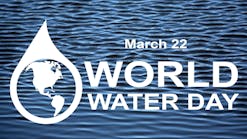New York City officials announced that the city’s water bill amnesty program, which ran from Jan. 30 through May 31, helped more than 100,000 water customers reduce their debts while also saving them more than $22 million in interest.
Of the nearly 200,000 customers who owed money on late water bills when the program started, more than 50% participated in the popular program—bringing in nearly $105 million in payments from substantially past due accounts.
During the program, the New York City Department of Environmental protection (DEP) granted $5.2 million in billing credits to help low-income customers that already participate in New York State’s Low Income Homeowner Water Assistance Program (LIHWAP). While the Amnesty program is over, DEP will continue to help those homeowners by offering up to $30 million toward the forgiveness of up to $5,000 of the remaining delinquent balance for each property owner.
The approximately $105 million recouped through the program will be used by DEP to invest in the water system’s resiliency, maintain and upgrade critical infrastructure, and keep water rates low for all customers. Importantly, many of the customers who came forward to pay past due balances had not made any payments at all for well over a year. Getting these customers back on track will pay dividends for the long-term financial health of the water system.
“Within just a few short months, our water bill amnesty program cleared the debts of more than 100,000 New Yorkers, saving them $22 million in interest, and leaving more money in working people’s pocket,” said New York City Mayor Eric Adams. “Additionally, the $105 million we have recouped since the program began will help us maintain our critical water infrastructure and keep costs low for all New Yorkers. We will not hesitate to take stronger steps for those who continue to fail to pay their bills.”
Customers that don’t pay delinquent bills or enter into payment plans would face enforcement measures, including water service shutoffs or legal action.
“Everyone has to pay their fair share to support our indispensable water system and we’re thrilled that the millions we brought in will help keep future water rates low,” said Chief Climate Officer and DEP Commissioner Aggarwala. “However, those with chronically delinquent accounts who continue to withhold payment will face serious enforcement actions, that may include water service shutoffs.”
During the pandemic, DEP saw a significant increase in the number and balance of delinquent accounts—there were $1.2 billion in delinquent payments before the amnesty program started, which threated the operations and capital needs of a service the city could not survive without.
To maximize program exposure, DEP conducted extensive outreach efforts that included engaging with elected officials, community boards, business improvement districts, real estate companies, and property managers; the program was promoted via social media, traditional press, ethnic media, Taxi TV, and 311, and notified eligible customers through robocalls, billing inserts, direct mail, and email.
The water bill amnesty program generated the first sustained reduction in DEP’s delinquent accounts balance since the onset of the Covid-19 pandemic. Due in part to the money the amnesty program brought in, DEP was able to propose a 4.42% increase to the New York City Water Board for the upcoming fiscal year 2024. The proposed rate was less than the rate of inflation and would keep the cost of water in New York City well below the national average while helping to fund critical infrastructure and resilience projects.



